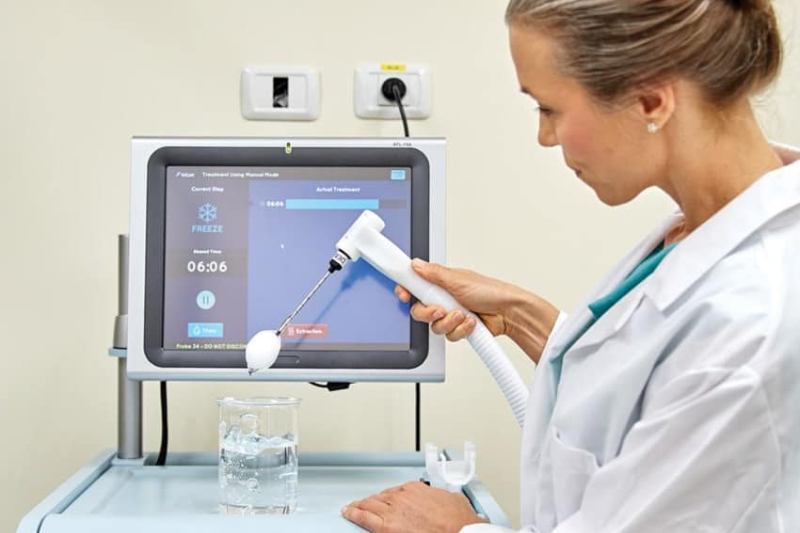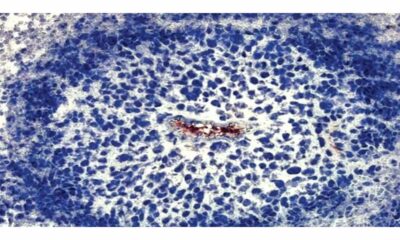According to a recent study, freezing large tumors may prove to be an effective treatment for breast cancer, which is notoriously hard to treat.
Researchers found that just 10% of patients who had cryoablation, a minimally invasive therapy, saw a recurrence of cancer within 16 months.
According to a news release, researcher Dr. Yolanda Bryce, an interventional radiologist at Memorial Sloan Kettering Cancer Center in New York City, “this approach could be more effective than the current standard of care for patients who have larger tumors but can’t undergo surgery.”
During the operation, an interventional radiologist places tiny, needle-like probes into the breast to generate an ice ball around the tumor after doctors have located it using ultrasound or CT imaging.
When paired with radiation and hormone therapy, the ice destroys the tumor, removing nearly all cancer cells from the patient, according to the researchers.
The procedure can be performed several times to prevent the tumor from growing back if cancer reappears, the researchers said.
Breast cancers smaller than approximately half an inch have been successfully treated with cryoablation. This study demonstrates that it can be applied to much bigger tumors.
In this study, sixty patients who were too old, too sick to undergo surgery, too high blood pressure, or too much chemotherapy had cryoablation instead of surgery.
Their tumors averaged around an inch in size, but they varied up to 3.5 inches in size.
Either little sedation or local anesthetic is used during the cryoablation procedure. Patients can return home the same day after the freezing procedure, which takes less than 30 minutes, according to the researchers.
“Surgery is still the best option for tumor removal, but there are thousands of women who, for various reasons, cannot have surgery,” Bryce stated. “We are optimistic that this can give more women hope on their treatment journeys.”
According to Bryce, researchers will keep tracking these individuals and gathering information on the procedure’s long-term efficacy.
This coming weekend in Salt Lake City, researchers will report their results at the annual meeting of the Society of Interventional Radiology.
Results that are presented at medical conferences ought to be regarded as preliminary until they are published in a peer-reviewed publication.

 Diabetology2 weeks ago
Diabetology2 weeks ago
 Diabetology2 weeks ago
Diabetology2 weeks ago
 Diabetology7 days ago
Diabetology7 days ago
 Diabetology17 hours ago
Diabetology17 hours ago















